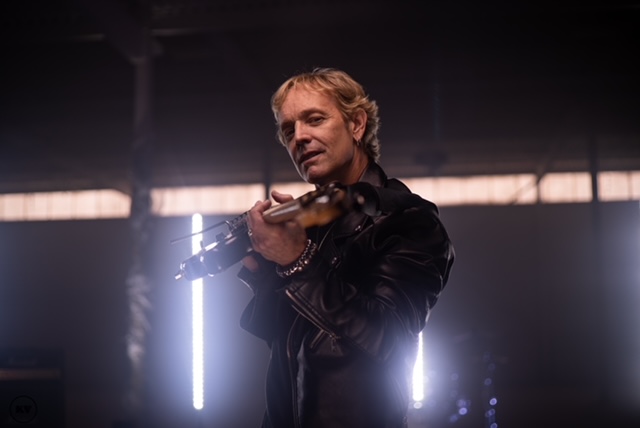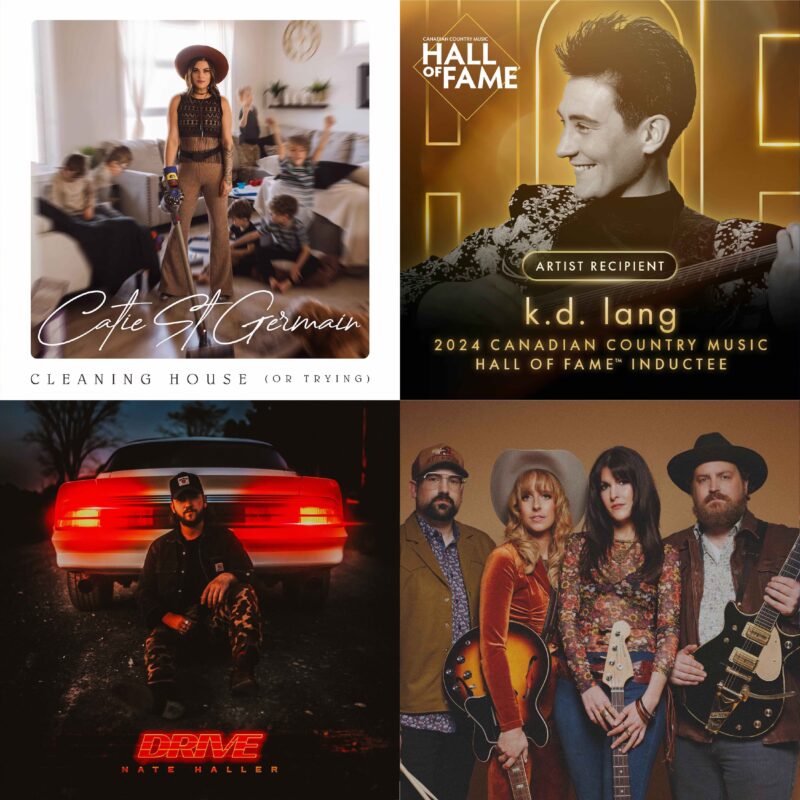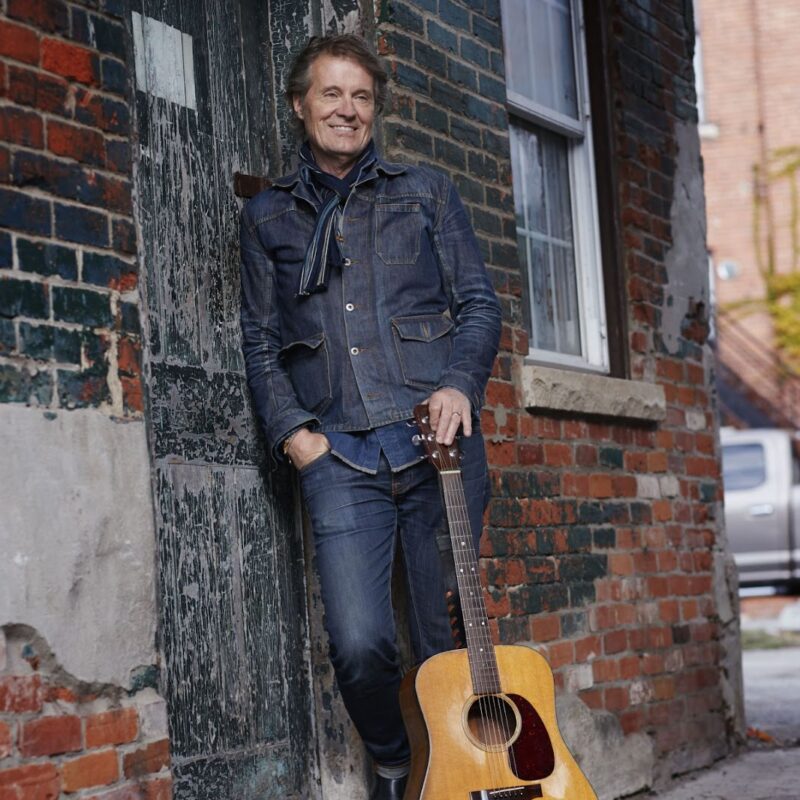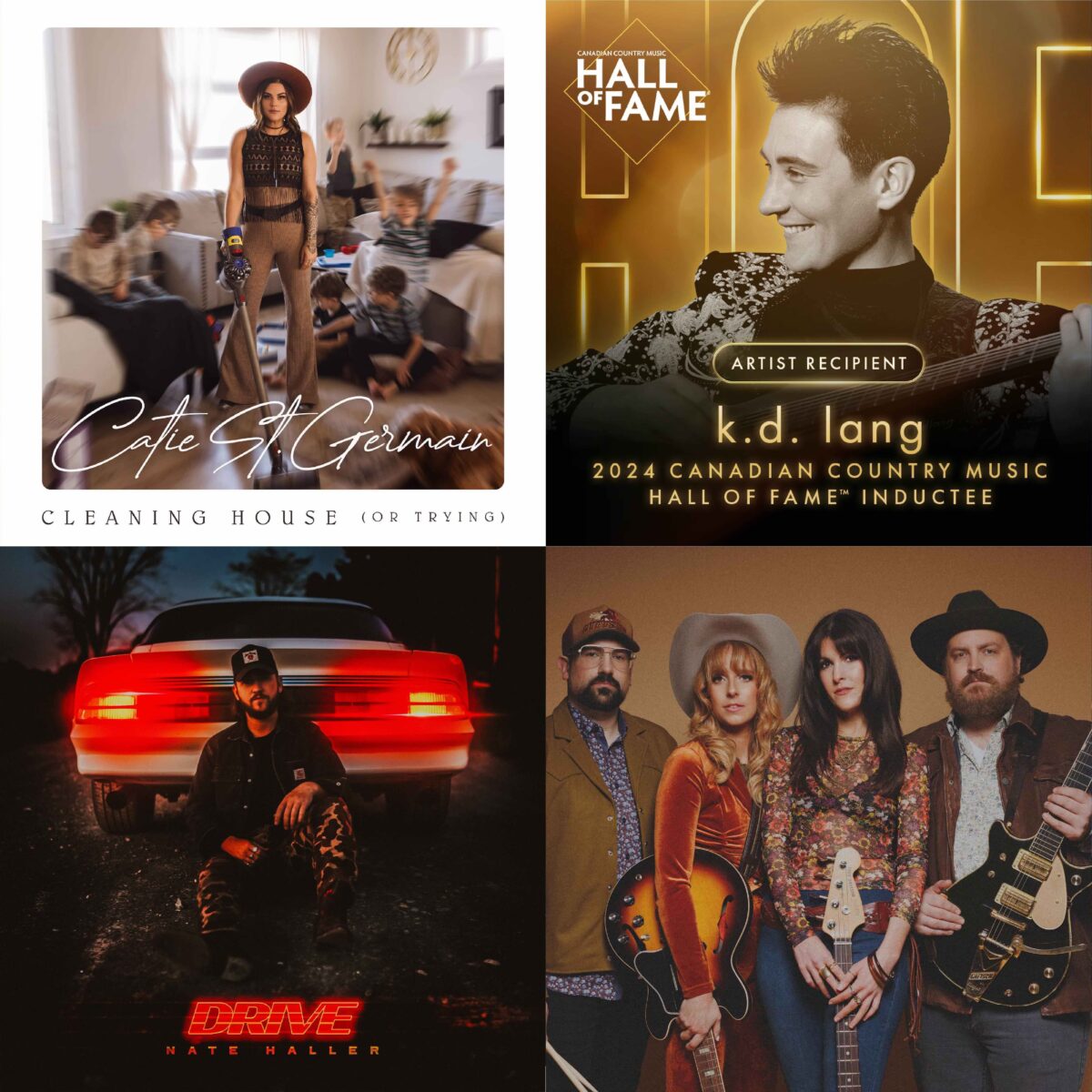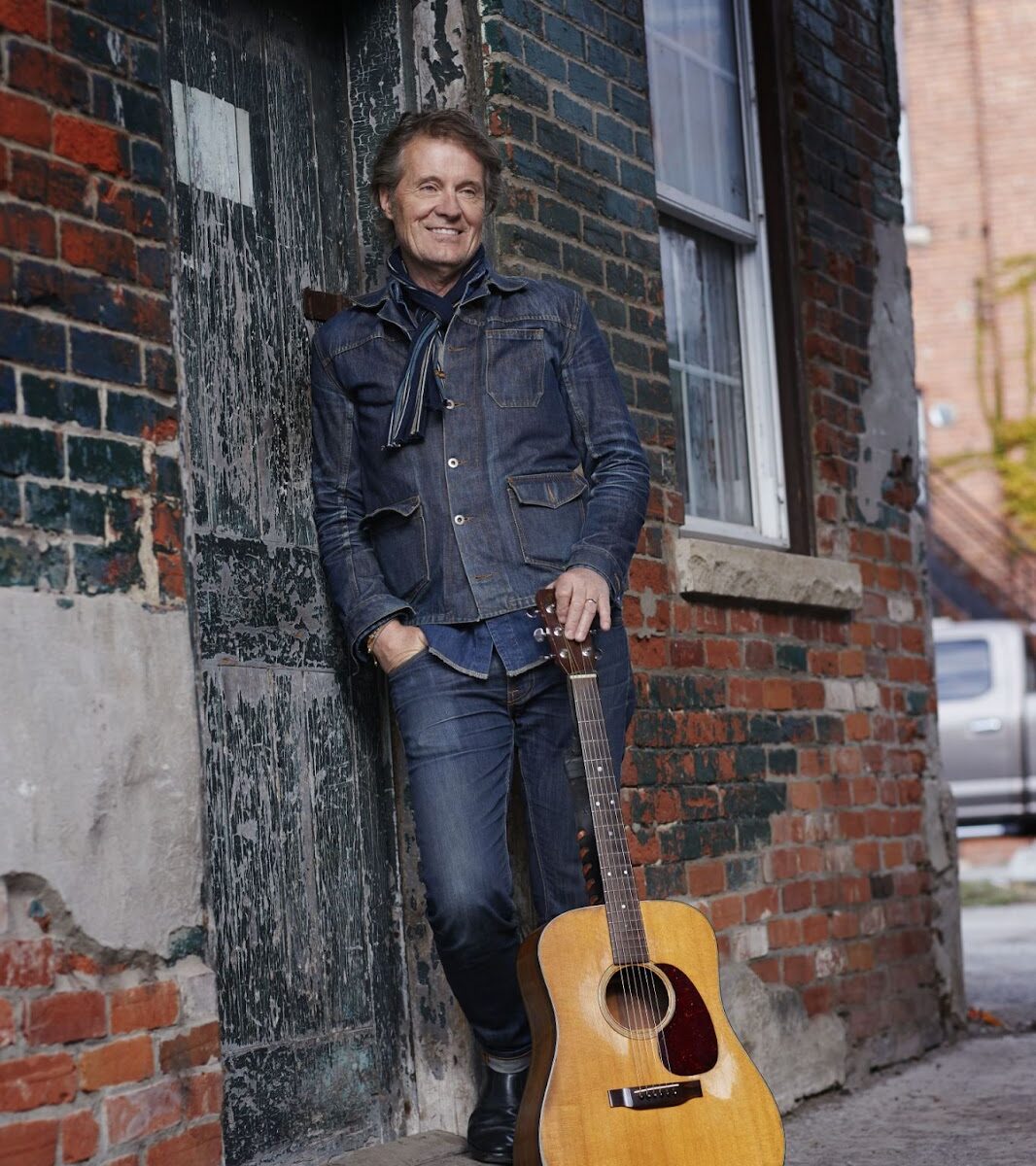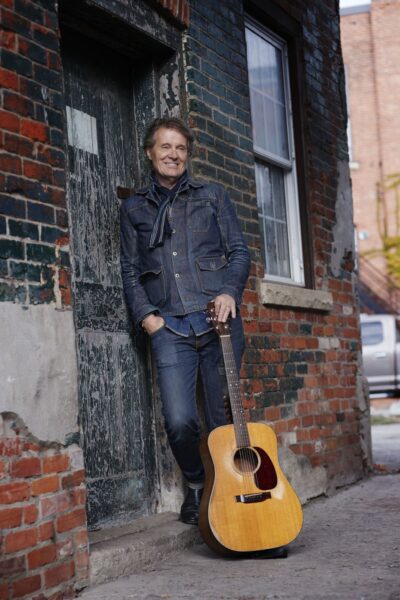BY SEAN PLUMMER
He may be best known for directing slick music videos for the likes of Rihanna and Drake, but Julien Christian Lutz – a.k.a Director X – has eschewed extraneous style and flare in favour of substance for his feature filmmaking debut Across The Line.
Set in small town Nova Scotia, the film casts Torononian Stephan James (Selma) as Mattie Slaughter, a talented black teen being scouted by the NHL. But Mattie’s ascension to the cover of the Wheaties box is made difficult by a number of factors, including his older brother’s links to crime and growing racial tensions between white and black students at his high school.
Across The Line is set in both North Preston, an all-black community, and Eastern Passage, a predominantly white suburb. The script by Floyd Kane was partly inspired by a massive racial brawl that took place between black and white students at Cole Harbour High School back in 1989.
Two days before the film’s theatrical release, X sat down with Music Express at a Starbucks kitty-corner from the CBC’s Toronto office to talk about race in Canada, music in film, and his future as a music video director.
Was that always the plan, to start with music videos and work towards directing films?
I was interested in the camera and the artistic expression of the camera. And music videos were my first platform, and I was really interested in making something great. Yeah, I wanted to make movies, but it wasn’t a matter of ‘I’m getting into this to make movies.’
Why was this project the right one?
What was great about this, what I feel was serendipitous about it was it was a low-budget feature, right? It was an independent. It wasn’t a studio picture with a producer and a studio head. I’ve worked on projects with four or five different producers, all with an opinion, all that must be listened to, all that are going to weigh in on the edit. This was two producers and a director, you know what I’m saying?
So that was a much freer way to express myself and really being able to get some of my vision out there. It’s not shooting TV. It’s not shooting all the angles you need to get edited down to the exact 45 minutes and 3 seconds; all these requirements you need when you’re going to put commercials in there. This was us just shooting. This was the right shot; this is what’s going to be the right camera move; this is going to be the right this, the right that.
What appealed to you about Floyd Kane’s script?
It’s a story we don’t know; that’s what makes it important. It’s a community we don’t know, a story we don’t know, an experience we are told doesn’t happen here. It’s good to have a realer understanding of how Canada works than the glossy thing we’re told in school: that there has never been racism here and this is where you come to escape racism, and Canada is awesome and America is mean.
What was your knowledge of racism in Nova Scotia going into this project?
So I grew up in Brampton, [Ontario], and my group of friends, even though we’re all West Indian, had a bunch of Scotian friends. They spoke different and had different slang and different talk, and they were just a different bunch.
So I knew the culture, I was part of it. There were Scotian jams that you would go to growing up, these wild parties; just a really different bunch. And I visited North Preston for a basketball tournament. I’d gone out there and seen that community and been part of that world out there.
So I’d known it. I knew that where there were black people there would be some white people with some dumb shit to say. I knew there was some racism, but I didn’t know it was as deep and as ingrained as it was.
Did you do a lot of research before doing the shoot?
Well, the writer of the film is from there, Floyd Kane. He was there when this riot happened in ‘89.
And, yeah, I did my research by just calling people in the community: ‘What happened?’ It’s a small community. ‘What happened in ’89? What happened in 2007?’ And you can talk to a kid who was actually in the fight: ‘Well, I punched him in the face because he said…’ So with that I was able to put some of that into the film.
Talk about casting Stephan James.
Floyd found him. Floyd was like, ‘There’s this kid, and he’s really good. This is the guy.’ We brought him to the table, sat down, had a talk. Really talented actor, man. The kid is really good.

Mattie says that “stereotypes are comfortable.” Talk about that idea.
You can put everyone in their box. ‘You wear these clothes so you believe this thing, and you obviously agree with these things.’ It’s just how we operate; it’s just human nature. ‘Turban means this,’ or ‘that means these world views.’ It makes things easy. It allows you to move through life in a certain kind of way. And this was a challenge to all those things.
Mattie talks about working twice as hard to get the recognition he deserves. Talk about that idea: that blacks have to work harder than whites to get what they want. Is that something you’ve experienced for yourself?
Yeah. You know, I work in America. So when you’re a black director, they say, ‘Oh, here’s a black thing for you to do. Here’s hip-hop, here’s R&B.’ What about a rock video? ‘Oh, I don’t know if you can handle rock. It’s white people with guitars. Don’t you need a different camera for that?’ You run into those things where, especially in America, black people do black things.
And then within that there’s just a little touch of ‘it’s not as good. It’s not as relevant unless it’s popular.’ You feel it under the surface, like ‘yeah, but it’s not what we do.’
What has been your experience of racism in small towns versus big cities?
If you have places where the people don’t mix, where the only mixing is at work, then you get into weird moments, right? And that’s what happened in Nova Scotia. North Preston is 99.9% black. It’s 100% black, and it’s been that way for over 100 years.
And then you have Eastern Passage where it’s a working-class white neighbourhood. So these people have never met. And then when they do meet, it’s in high school where they have all these ideas…
So anywhere you go… Chicago, I feel a little bit of that in the air. You know what I mean? It’s not blatant. This is 2016. I’m not dealing with blatant, out and out… Maybe in the South.
The rule is if you have a place with really strong racial tensions, I guarantee those people don’t know each other. They don’t live around each other and they’re not communicating or connecting. Because guess what? Fifteen-year-old boys like what fifteen-year-old boys like, regardless of race: porn, videogames and comic books. The common interests are common interests, and people are people. But if you never get to mix then suddenly your choice in music means so much more.
Across The Line does not look like a music video.
We’re telling a story that’s pretty serious. So to do a ‘let’s gel it all blue,’ ‘make everything in the house red,’ there are films where that works, but those films are much lighter.
You need to be in a reality. It needs to be great photography, but there’s stuff you can do in a music video just to do some cool shit. Let’s say you’re doing a young, fun teen movie. The whole room’s red. Why? Because the whole point is that it is young and fun. So let’s do cool, fun shit. The point of this movie was not cool and fun. So just to do a lighting gag or flares just doesn’t fit.
So I was dealing more in motivation. Again, good photography, interesting camera moves but no low-angle, slow-motion walking scenes. It’s not John Woo. There’s no part of this where you’re supposed to get wooed by cool. So that’s not there.
You have an original score by Menalon which is very propulsive and almost industrial. Talk about working with them and what you wanted from the film’s score.
The movie soundtrack was inspired by Gesaffelstein. They’ve got this song ‘Hate and Glory’ [youtube width=”600″ height=”338″ video_id=”2_NgkfRmUPk”]Really amazing, genius-level producers. So it’s industrial and hard and primal, and has this energy about it.
So I wanted the voice of the movie to be that, which, as we’re doing the cut, we’re using this music in a lot of scenes. And then I hired a few of my friends from the music industry to do the production. But it’s very different, making music for a movie, and saying, ‘Hey, I need you to make something that sounds like this and has this mood’ for a guy who, really, what he does is make music. He really should be inspired by nothing.
So we weren’t quite getting what we were looking for. The music industry and the film industry, even though it’s music, doesn’t connect.
So the producers actually let go my music supervisor, and we found another person who brought in Menalon who make music for film and television; that’s what they do. So they heard the inspiration pieces and created the title track. We don’t even have a name for the song. We’re going to have to name the song. But it was strong and powerful and really changed everything. It gave us a theme to work with and something that spoke to the film.
What impact or influence do you hope Across The Line might have on kids watching it?
It’s like taking a kid camping. I just want you to see some other shit. You need to see that there’s a world out there. You need to know that Canada has a world outside of Toronto; that there’s a history there and a community. You just introduce people to stuff, and how they take it is a whole other thing. You paint a picture, put it on a wall, and go from there. And you put in your emotion and you go from that and people get what they get from it. I’m not expecting anybody to go start hugging. But if they do, that’s terrific.
Across The Line won best Best First Feature at the Canadian Film Festival recently, with Stephan picking up Best Actor. How important is that kind of recognition at home?
It’s very cool. I’m very happy. It’s good for people to look at your work and say, ‘Hey, you did really good.’ So give it the black power fist on that one.
Do you have plans to give up music videos for making films?
I like filmmaking. So I’m very happy making whatever the project is, me and the camera shooting, making work that is interesting to me and engages me, that has artistic value or maybe even just commercial value but something that I’m proud to be a part of.
Across The Line opens today (April 15, 2016) in Toronto at Cineplex Yonge+Dundas, Cineplex Scarborough and Cineplex Scotiabank Halifax.
ATL also plays a special one-night only event tomorrow (April 16) at Market Hall Theatre in Peterborough, ON
[youtube width=”600″ height=”388″ video_id=”lFogMKi7_gQ”]

